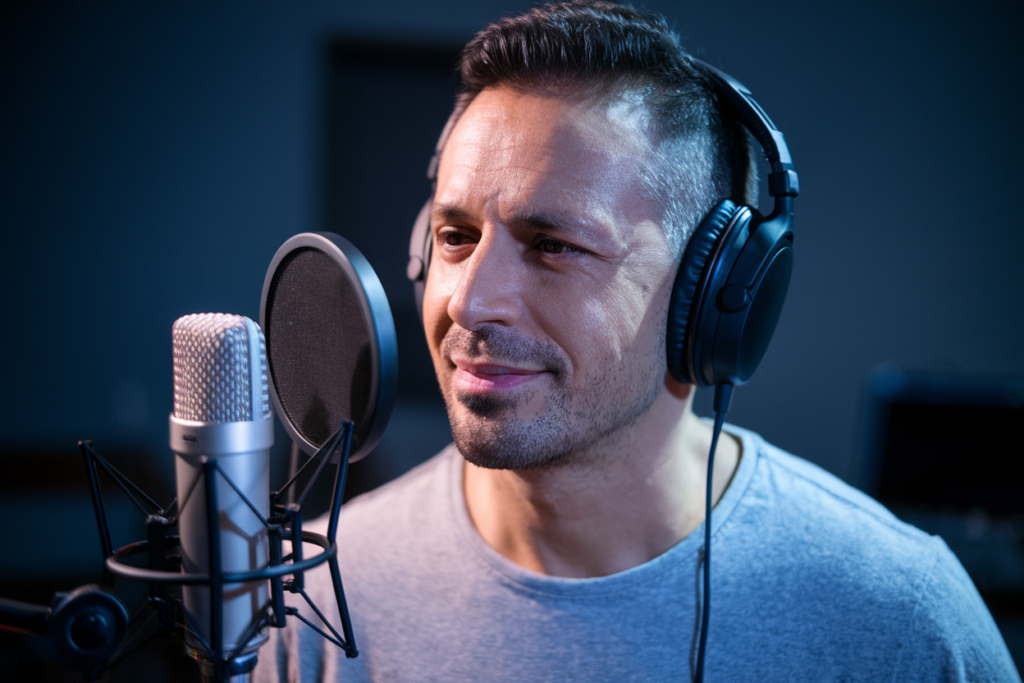Key Takeaways
- Standard Form: Istanbul Turkish is recognized as the official and standard form of the Turkish language, heavily influencing communication across Turkey.
- Cultural Influence: The dialect reflects Istanbul’s rich cultural and historical significance, incorporating diverse regional elements that contribute to its unique vocabulary and pronunciation.
- Educational Focus: Educational institutions primarily teach Istanbul Turkish, ensuring consistency in language instruction for students throughout the country.
- Media Representation: Major media outlets favor Istanbul Turkish for broadcasts, reinforcing its status as the primary dialect for public communication.
- Historical Evolution: The development of Istanbul Turkish has been shaped by a blend of languages due to historical exchanges, particularly during the Ottoman Empire.
- Linguistic Features: Distinct pronunciation, vocabulary influenced by Persian and Arabic, and flexible syntax characterize Istanbul Turkish, making it easily understandable across different regions.
Is Istanbul Turkish the official form of the language? If you’ve ever wondered about the nuances of Turkish dialects and their official status, you’re not alone. Many people are curious about how the vibrant city of Istanbul influences the Turkish language spoken across Turkey.
Overview of Istanbul Turkish
Istanbul Turkish serves as the standard form of the Turkish language, heavily influenced by the cultural and historical significance of Istanbul. This dialect incorporates elements from various regions and has become a linguistic benchmark across Turkey.
Istanbul’s status as a melting pot contributes to its unique vocabulary and pronunciation. You’ll find that many words used in everyday conversations reflect this rich tapestry of influences, making it distinct yet widely understood.
Education systems predominantly teach Istanbul Turkish. This focus ensures that students across Turkey develop proficiency in this dialect, fostering consistency in communication. Media outlets also favor this form, using it for news broadcasts and television shows, which further solidifies its role as the official standard.
While other regional dialects exist throughout Turkey—each with its own charm—they often borrow from or adapt elements of Istanbul Turkish due to its prominence. The fusion creates an ever-evolving linguistic landscape, deeply rooted in both tradition and modernity.
Understanding Istanbul Turkish opens doors for effective communication within the country and beyond. Whether you’re traveling or working on projects involving this vibrant culture, grasping the nuances of this dialect enhances interaction with native speakers and enriches your experience.
Historical Context
The historical context of Istanbul Turkish provides insight into its development as the official form of the language. This dialect reflects a rich tapestry of influences from various regions and cultures.
The Development of Turkish Language
The Turkish language evolved significantly over centuries, influenced by multiple languages due to trade, conquest, and cultural exchange. Early forms were heavily influenced by Persian and Arabic, especially during the Ottoman Empire. In the 20th century, a language reform aimed to simplify and modernize Turkish. This shift emphasized vocabulary that aligns more closely with its Turkic roots rather than borrowed terms. As a result, Istanbul Turkish emerged as a standardized version that incorporates these reforms while retaining elements from diverse dialects across Turkey.
The Role of Istanbul in Turkish Culture
Istanbul’s position as Turkey’s cultural hub greatly shapes its linguistic landscape. As the largest city in Turkey, it attracts people from all walks of life, blending various regional dialects into everyday conversation. This melting pot status enriches Istanbul Turkish with unique expressions and pronunciations that resonate nationwide. Additionally, media outlets based in Istanbul predominantly use this dialect for broadcasts—whether it’s news reports or entertainment—making it familiar to audiences across Turkey. Education systems also prioritize teaching Istanbul Turkish, ensuring consistency in communication among future generations.
Through this lens of history and culture, it’s clear how Istanbul has become synonymous with standardizing the Turkish language while embracing its diverse roots.
Official Status of Istanbul Turkish
Istanbul Turkish is recognized as the standard form of the Turkish language, embodying a rich blend of regional influences and cultural significance. Its prominence stems from Istanbul’s historical role as Turkey’s cultural and economic hub.
Recognition by the Turkish Government
The Turkish government officially recognizes Istanbul Turkish as the primary dialect for education, media, and public communication. Educational institutions primarily teach this form, ensuring that students across Turkey receive consistent linguistic instruction. Media outlets favor Istanbul Turkish in broadcasts, reinforcing its status as the standard dialect. This official recognition solidifies its role in unifying communication throughout the country.
Comparison with Other Dialects
Istanbul Turkish differentiates itself from other regional dialects through its unique vocabulary and pronunciation. While various dialects exist within Turkey—such as Aegean or Eastern Anatolian—they often incorporate elements from Istanbul Turkish due to its widespread acceptance. For instance, certain phrases or expressions commonly used in Istanbul may not be found in more localized speech patterns. The dynamic nature of these interactions reflects a vibrant linguistic landscape where different forms coexist while drawing from a common standard.
Understanding how Istanbul Turkish serves as a linguistic benchmark enriches your appreciation for Turkey’s diverse culture and history.
Linguistic Features of Istanbul Turkish
Istanbul Turkish exhibits distinct linguistic features that set it apart from other dialects. Its pronunciation, vocabulary, and syntax reflect the city’s rich cultural heritage and diverse influences.
Pronunciation and Accent
Istanbul Turkish has a unique pronunciation characterized by clear vowel sounds and specific intonation patterns. It’s generally perceived as more standardized compared to regional dialects, making it easily understandable across Turkey. The accent often emphasizes certain syllables, creating a melodic quality that many find appealing. Additionally, some consonant sounds may be softer or pronounced differently than in other dialects, contributing to its distinctive auditory identity.
Vocabulary and Syntax
Istanbul Turkish boasts a vast vocabulary influenced by historical interactions with various languages, including Persian and Arabic due to the Ottoman Empire’s legacy. This rich lexicon includes modern terms reflecting contemporary life alongside traditional words still in everyday use. Syntax remains relatively straightforward but allows for flexibility; speakers can rearrange sentences for emphasis or style while maintaining clarity. This adaptability enhances communication effectiveness across different contexts, whether casual conversation or formal discourse.
By understanding these linguistic features of Istanbul Turkish, you gain insight into its role as the standard form of the language in education and media throughout Turkey.
Conclusion
Istanbul Turkish stands out as the official form of the language, shaping communication across Turkey. Its unique blend of influences from various regions makes it a linguistic standard that’s widely understood. The city’s cultural richness contributes to its distinct vocabulary and pronunciation, further solidifying its role in education and media.
As you navigate through different dialects, you’ll notice how they often draw from Istanbul Turkish. This interconnectedness highlights the dynamic nature of the Turkish language while showcasing your country’s diverse heritage. Embracing Istanbul Turkish not only fosters unity but also enriches your appreciation for Turkey’s vibrant cultural tapestry.
Frequently Asked Questions
Is Istanbul Turkish the official form of the language?
Yes, Istanbul Turkish is recognized as the official form of the Turkish language. It serves as the standard dialect for education, media, and public communication in Turkey.
How did Istanbul influence the Turkish language?
Istanbul’s cultural and historical significance has shaped Istanbul Turkish, incorporating elements from various regional dialects. This blending makes it a linguistic benchmark widely understood across Turkey.
What are some unique features of Istanbul Turkish?
Istanbul Turkish is known for its clear vowel sounds and specific intonation patterns. Its vocabulary includes influences from Persian and Arabic, making it rich and diverse in expression.
Why is Istanbul Turkish taught in schools?
Education systems predominantly teach Istanbul Turkish to ensure consistency in communication throughout Turkey. This standardized approach helps unify understanding among speakers from different regions.
Are there other dialects of Turkish besides Istanbul Turkish?
Yes, while many regional dialects exist in Turkey, they often borrow elements from Istanbul Turkish due to its widespread acceptance and role as a linguistic standard.







